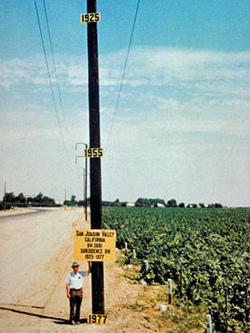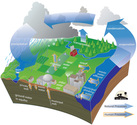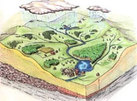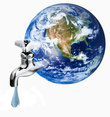|
|
|
Freshwater Environments

Freshwater environments are increasingly under threat. River systems are over extracted and polluted as a consequence of economic policy. Artesian basins are being drained to support unsustainable agricultural systems and our wetlands are in fast retreat, along with the rich biodiversity that they support. Climate change threatens to accelerate the rates at which these freshwater environments are being lost and in a political context whereby countries struggle to develop cross-state drainage basin strategies, the prospect for nation states to resolve water management conflicts seems unlikely. The study of freshwater systems today is a much broader topic than the traditional river systems approach of old. The study of landform evolution remains an important element to the study of freshwater environments. But, in a rapidly industrializing world, the very base flow inputs of our water systems are being lost or extracted at alarming rates. The reasons for this are complex, but can be largely found in socio-economic and geopolitical factors. The cosequences of which are both human and physical. Glacial retreat in the Himalayas has increased 10 fold in last two decades, sedimentation in the Bay of Bengal is forming new islands, tapped water basins are increasingly salinised and water scarcity theatens nearly every place where modern irrigation systems have been deployed. The ability for countries to respond to these threats is in question. Rapid reform of water management at a national and global scale is required. Without such reform the prospect, is one of possible dire socio-economic change.





